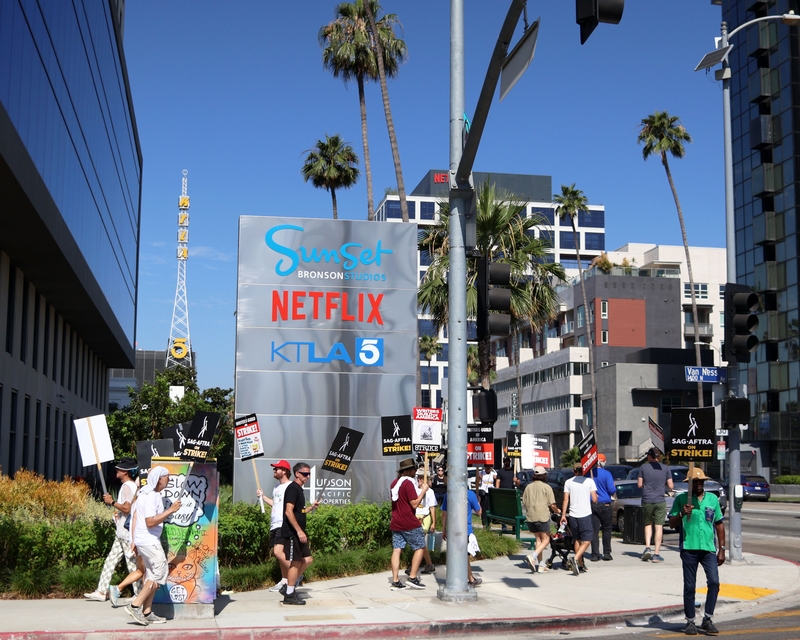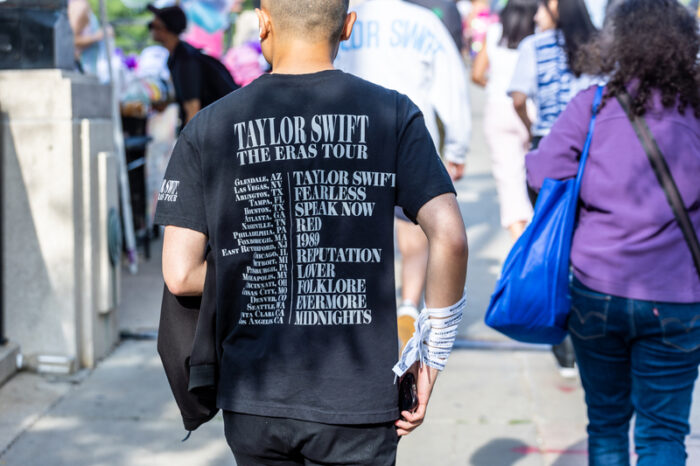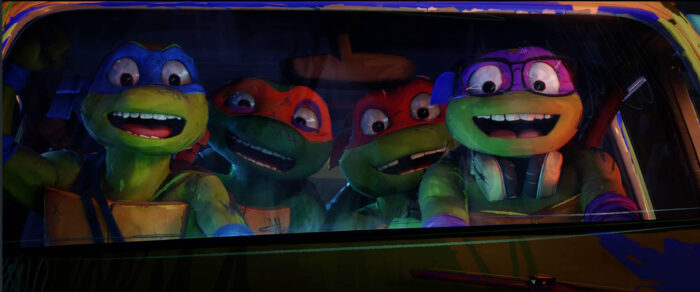Hollywood is famous around the world as the place where many of the world's most popular movies and TV shows get made. Some people even call it a 'dream factory'.
But right now, that 'factory' is not making anything. No movies, no shows.
That is because a pair of strikes—one by writers and the other by actors—have ground Hollywood productions to a halt. And these American strikes are affecting the entertainment industry around the world, including in Canada.
What is a strike?
A strike is when an organized group of workers, known as a union, refuse to go to work as a protest. Usually, they are demanding to receive something related to their jobs. By going on strike and removing themselves all at once from their jobs, they put pressure on their employers (bosses) to listen to their demands.
Strikes have actually been recorded as far back as during the ancient Egyptian empire! But more recently, strikes and unions really began in the mid-1800s during the Industrial Revolution. Factories needed huge work forces to run. Those workers found that they had a much easier time asking for things like more pay or guaranteed holidays if they unionized, or joined together as one, to make demands.
Who is in this strike?
These strikes began with the writers that produce film and TV scripts. (Getty Embed)
It started in May when the Writers Guild of America (WGA) went on strike. The WGA is made of the people who write the stories that are turned into shows. All of the words that are said and all of the plot twists that happen (as well as so much more) come from the imagination of these writers.
Then in July, WGA was joined by two more unions—the Screen Actors Guild (SAG) and the American Federation of Television and Radio Artists (AFTRA). There unions represent actors, as well as on-air voice talent on things like radio, as well as journalists and even talk show hosts.
Altogether, the two unions represent about 175,000 people who work in film, TV, radio, and other media.
Why are they on strike?
These strikes are not just in Hollywood. Related groups in cities like Las Vegas are also on strike. (Getty Embed)
There are two main reasons.
The first is because they want to negotiate (discuss and agree to) fairer terms about the money they make from streaming. When a film or show is screened, people must pay some money for the right to view that product. That money is first paid to the company that owns that show (such as big Hollywood studios like Paramount or Universal). Then, that money is further divided amongst all of the people who helped make that show, including actors and writers.
But currently, the agreements that WGA and SAG-AFTRA have with Hollywood studios are very old and only cover when shows are screened in movie theatres or on TV. There are no rules for streaming, which is how most people watch programs now.
The striking workers say that big studios are making tons of money off of streaming services, while they receive next to nothing. They want a deal that pays them fairly when their work is streamed.
Unions members protesting in New York City. (Getty Embed)
The second reason is A.I., or artificial intelligence.
Currently, chatbots, like ChatGPT, are so highly developed that they are already used by companies to produce some types of writing that would normally be done by a human.
And A.I. generators are able to almost seamlessly imitate the voices and faces of humans, including famous actors. Many experts are predicting a future where A.I. could be used to have a star like Tom Cruise or Hailee Steinfeld appear in a movie that they never actually acted in. It would all be generated by a computer to look like them.
The members of WGA and SAG-AFTRA want an agreement that makes it illegal to replace writers with A.I. on actual film and TV scripts, or to have studios use A.I. to duplicate an actor's personal image and talents without consent (without them agreeing to it).
How does this affect everyone else?
Though this strike is centered in Hollywood's entertainment industry, it reflects how many parts of society are changing. (Getty Embed)
There are a few answers to that.
First, if you like watching shows and films, you will notice less of them over the next little while. Summer is usually a busy time in Hollywood, as they finish off shows that will be released in fall. All of these programs will be delayed.
Second, even though similar unions in countries like Canada aren't on strike right now, many work closely with American studios on projects. These strikes have halted many Canadian work sites in cities like Toronto and Vancouver. (Also, the Alliance of Canadian Cinema, Television and Radio Artists (ACTRA) will be doing their own negotiations in 2024 and could go on strike, too.)
Third, these strikes are about something that is affecting many other industries around the world. A.I. and computers are constantly changing people's jobs. From robots that do physical labour to A.I. that writes news stories, does accounting, or even examines legal documents, we are quickly finding that there are few things that a computer can't do.
The results of these strikes could set a precedent (a common example) that is followed by other industries in the future.
 Hollywood writers marching in a picket line, where they carry signs and express their issues. (ID
285267793
© Wirestock
|
Dreamstime.com)
Hollywood writers marching in a picket line, where they carry signs and express their issues. (ID
285267793
© Wirestock
|
Dreamstime.com)









